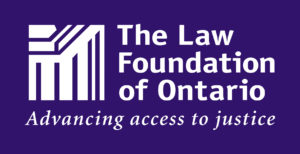NSRLP’s “Family Law at the Library” Pilot Project
 This particular project of the NSRLP first developed out of conversations between Director Julie Macfarlane and Project Manager Dayna Cornwall on the potential of public libraries to serve the needs of SRLs: Ms. Cornwall has a Master of Library and Information Science, and has worked in public libraries, and saw a natural line between the work of the NSRLP, and the goal of librarians to provide access to information, and safe space to all members of the community. It felt like a natural fit for the NSRLP to work with library staff on resources that would benefit SRLs visiting the public library.
This particular project of the NSRLP first developed out of conversations between Director Julie Macfarlane and Project Manager Dayna Cornwall on the potential of public libraries to serve the needs of SRLs: Ms. Cornwall has a Master of Library and Information Science, and has worked in public libraries, and saw a natural line between the work of the NSRLP, and the goal of librarians to provide access to information, and safe space to all members of the community. It felt like a natural fit for the NSRLP to work with library staff on resources that would benefit SRLs visiting the public library.
The public library as legal resource makes particular sense for family SRLs, given that libraries already exist as family-friendly spaces, and families and children make up a large proportion of public library users.
We therefore put in an application to the Law Foundation of Ontario’s Family Law Access to Justice Fund, which was subsequently accepted, and the project was generously funded by the LFO for two years (2018-2020).
Mobilizing the Potential of Public Libraries to Serve Self-Represented Litigants
In this pilot project, we partnered with local (Southwestern Ontario) public libraries to provide support, workspace, curated and custom-made resources, and educational programming for family SRLs. This was underpinned by training for library staff on the challenges faced by family SRLs and the types of assistance and resources that can help them; the entire project was promoted by marketing efforts aimed at family SRLs, to encourage them to make use of public libraries for support and legal information. Although we faced the unexpected challenge of the COVID-19 pandemic, we were able to adapt the project (with the support and flexibility of the LFO), and are very pleased with the success of our various initiatives. Our “Lawyer in the Library” program was a particular success. We have used this pilot period to develop best practices in the delivery of these initiatives, which have been gathered into a final report, recommendation, and materials package, in the hopes that this can be used to duplicate the project at other public library systems across Canada.
We were able to generate, in the two-year pilot period, an excitement about and growing commitment among library staff and the local community to the project. Our vision continues to be that family SRLs will be welcomed at their local library, that they can find assistance from trained librarians who understand their challenges, access useful resources, and utilize workspace and equipment. We hope to move forward with these initiatives in the future in other public library systems in Ontario and Canada. If you are interested in learning more, or in funding this program, please email representingyourself@gmail.com.
“Family Law at the Library” was generously funded through the LFO’s Family Law Access to Justice Fund.
National Trusted Intermediaries and Legal Information Network
About the Network
Collaborators: Brea Lowenberger, Director of CREATE Justice and Access to Justice Coordinator, Melanie Hodges Neufeld, Ministry of Justice, Dayna Cornwall, Project Coordinator, National Self-Represented Litigants Project (NSRLP), and Megan Smiley, LawMatters Program Coordinator, Courthouse Libraries BC.
The National Trusted Intermediaries and Legal Information Network started as a collaboration among members from the Saskatchewan Access to Legal Information Project (SALI Project), the National Self-Represented Litigants Project (NSRLP), and British Columbia’s LawMatters Program. Since its inception, the network has grown to 80+ members from 9 jurisdictions across Canada.
The creation of a National Trusted Intermediaries – Legal Information Network seeks to improve access to plain language legal information and affordable services through community workers who act as trusted intermediaries, such as court services staff, librarians, and social workers.
The importance of ongoing coordination, information exchange, and collaboration across Canada in supporting and creating capacity for community workers is supported by research such as the Trusted Help Report: The role of community workers as trusted intermediaries who help people with legal problems, and, as it states, by “[r]esearchers and academics in Canada, the UK, Australia, and the US”, who have “documented the trusted intermediary approach to helping to address common legal needs”. Recently, the Community Justice Help: Advancing Community-Based Access to Justice report proposes a new approach for enabling community workers (as non-legal professionals) to provide assistance for law-related problems.
Through the Network, we can better learn and understand the ways in which trusted intermediaries, such as librarians and other community workers, can advance access to justice, and how we can better support them. Building off of the Trusted Help Report and Community Justice Help Report, we aim to:
- Use the network to promote information exchange and robust conversation across Canada online and through monthly virtual meet-ups
- Provide opportunities between trusted intermediaries and justice sectors to reciprocally learn how best to meet the needs for legal information
- Identify areas to collaborate to produce webinars and other training opportunities for trusted intermediaries thataddress unique and overlapping needs of the public and trusted intermediaries in urban, rural, and remote areas
- Avoid unnecessary duplication of efforts, seeking to pool resources and collaborate on projects wherever possible
- Discuss strategies around anational advertising/public engagement campaign, to make the public more aware of public libraries and other sites with trusted intermediaries as an ‘access to justice entry point’
- Share information about best practices aroundtechnology infrastructure and triage systems among community workers, libraries, public legal education associations, and Law Society/University Library systems, so that good referrals can be made and credible and plain language legal information is at everyone’s fingertips
- Inform the implementation of data projects and common evaluation tools that measure the impact and legal information provision needs of community workers and the public they serve
- Identify how lessons learned through partnering with this type of trusted intermediary (i.e. librarians) could apply to partnering withother trusted intermediaries
Get involved
We are interested in serving as conveners of people who are interested in the role of community workers in improving access to justice for Canadian citizens, and are seeking suggestions, ideas, and input to build this Network. Please email us to join our online Basecamp platform, and to share your interest in joining the Network. Send your name, role, organization, and if you wish, a sentence or two indicating your objectives/interest in joining to any one of the collaborators listed below to be added to the platform.
- Brea Lowenberger, Director of CREATE Justice and Access to Justice Coordinator
- Melanie Hodges Neufeld, Crown Counsel, Innovation Division, Ministry of Justice
- Dayna Cornwall, Project Coordinator, National Self Represented Litigants Project (NSRLP)
- Megan Smiley, LawMatters Program Coordinator, Courthouse Libraries BC
Project news
Michel-Adrien Sheppard, Access to Justice: Join the Trusted Intermediary-Legal Information Network (CALL Blog, October 10, 2020).
Megan Smiley, Join a national network of librarians and legal community staff to help increase access to justice (VALL Blog & Announcements, October 9, 2020).
Melanie Hodges Neufeld, Trusted Intermediary-Legal Information Network (TI-LI) Meeting – The Impact Of COVID-19 On Funding & Program Development (Legal Sourcery Blog, September 1, 2020).
Brea Lowenberger, Melanie Hodges Neufeld, Dayna Cornwall and Megan Smiley, presented “Librarians as Critical Justice Services Providers: Lessons Learned & Best Practices” as part of a Community of Practice Teleconference Presentation and Roundtable of the National Action Committee on Access to Justice in Civil and Family Matters on April 8-9, 2020.
Melanie Hodges Neufeld, Call to Action: Trusted Intermediary – Legal Information Network (TI-LI) at CALL Conference (Legal Sourcery Blog, June 6, 2019).
Brea Lowenberger, Melanie Hodges Neufeld, Megan Smiley, and Dayna Cornwall presented at the Canadian Association of Law Libraries Conference on “The Role of Legal Information Providers and Public Libraries in Promoting Access to Justice: Exploring Opportunities and Challenges” on May 27, 2019.
Related project publications
Beth Bilson, Brea Lowenberger, & Graham Sharp, “Reducing the ‘Justice Gap’ Through Access to Legal Information: Establishing Access to Justice Entry Points at Public Libraries“ (2018) 34:2 Windsor YB Access Just 99.

